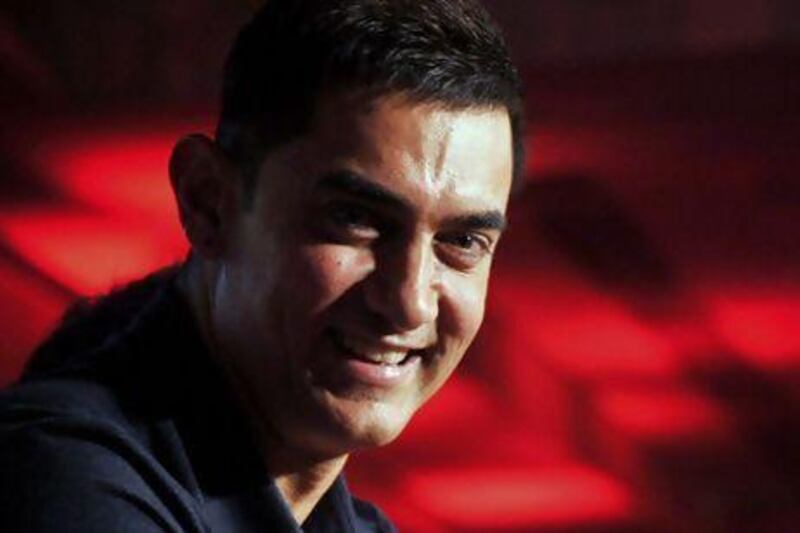After a three-year absence, Aamir Khan is back with the thriller Talaash, one of the most hotly anticipated films of 2012. Ujala Ali Khan asks him what drew him back to the big screen.
In Talaash, Aamir Khan plays Suraj Singh Shekhawat, a broody, mustachioed police officer who catches a case that turns his life upside down: a seemingly simple car accident that turns out to be something a lot more sinister.
Rani Mukerji, clad in simple saris, plays Roshni, his wife. And Kareena Kapoor will once again be on-screen with Khan, in a sultry, glamorous role.
Thrills and suspense weave through the emotional drama as he juggles the mysterious case, a breaking marriage and a fatal attraction.
What persuaded him to agree to do Talaash, which he not only stars in but also co-produced? "Definitely a combination of a fantastic script and the chance to work with some very good actors," he says, going on to explain how the mix of drama and emotion in the story caught his attention. Having sat through two readings before he agreed to associate himself with the project, Khan describes the story as an engaging mix of suspense and drama to get the audience hooked and emotion to keep them involved.
"The story is so riveting that it keeps you on the edge of your seat and keeps you guessing. But this film is not just a suspense drama. It tackles the very emotional subject of coming to terms with loss … which is a reality very close to each one of us," says Khan. "Everyone has either lost someone they love, or are afraid to lose someone they love. The film explores this emotional vein."
With a 24-year career in Indian cinema behind him, Khan has starred in the highest-grossing Bollywood movie of all time (3 Idiots from 2009, which also starred Kapoor). He was on the cover of Time magazine in August, with the words: "Can an actor change a nation?" - a reference to Satyamev Jayate, his talk show on Indian television which has shaken the conscience of the nation by tackling taboo subjects such as female foeticide, child abuse, medical malpractice, honour killings and domestic violence.
Social reform is obviously close to Khan's heart. Does this come into play when he considers the Bollywood offers that come his way? "I don't actually make a conscious effort to play a good Samaritan, nor do all of my films have to have social messages," Khan says. "I have also done films like Delhi Belly and Dil Chahta Hai. A lot of other factors come into play when choosing a film. Even on a personal level, I don't consider myself to be some kind of good Samaritan. I try to be the best I can be, as we all do. Sometimes I succeed, sometimes I fail. But I try.
"As far as films are concerned, I do films that excite me, stories that touch me. If they happen to have a social message, then that is just the way it has turned out, not the way it has been planned."
Khan brushes off queries about the box-office prospects of Talaash. "Box-office returns are something to be looked at in retrospect," he insists. "I do not go into a film wondering what kind of money it is going to make at the end. If I did that, I would not have made half the films I did. There are a lot of ways to gauge whether or not a film is good. Commercial success is just one of them and it is not necessarily the most important one. I am the last person to look at the prospect of commercial success before I start a project. These numbers are deceptive. To me, success is when you are happy with the work you have done."





